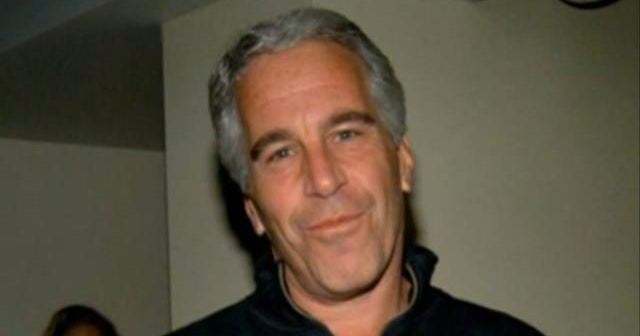An extensive review conducted by the Justice Department and FBI has revealed no evidence of a “client list” associated with the late financier Jeffrey Epstein, nor any indication that he blackmailed prominent individuals. The investigation also concluded that Epstein died by suicide in August 2019 while awaiting trial on federal sex trafficking charges. The findings were detailed in a memo which emphasizes the lack of actionable evidence concerning other parties connected to Epstein’s criminal activities.
| Article Subheadings |
|---|
| 1) Overview of the Findings |
| 2) The Context of Epstein’s Death |
| 3) Investigative Process and Public Concerns |
| 4) Government Transparency and Public Trust |
| 5) Implications of the Investigation Results |
Overview of the Findings
The Justice Department and FBI’s recent memo concluded that there is no evidence to support the existence of a “client list” connected to Jeffrey Epstein. This conclusion is based on extensive research, which included analyzing video footage and interviewing various parties, confirming that there was no significant data that could lead to further investigations of uncharged third parties. The memo states, “This systematic review revealed no incriminating ‘client list.’ There was also no credible evidence found that Epstein blackmailed prominent individuals as part of his actions.”
The Context of Epstein’s Death
Jeffrey Epstein was found dead in a Manhattan correctional facility in August 2019, a death officially ruled a suicide. At the time, Epstein was facing serious federal charges related to sex trafficking. His death prompted scrutiny and investigations from various agencies, including the Justice Department’s internal watchdog and the FBI. The investigation confirmed that video evidence showed Epstein was alone in his cell and that no staff members entered the area at the time of his death. The Justice Department’s findings aimed to clarify any ambiguities surrounding Epstein’s death amidst numerous conspiracy theories circulating in the public domain.
Investigative Process and Public Concerns
The public’s demand for transparency regarding Epstein’s life and death has been persistent since his arrest. In an effort to provide clarity, Attorney General Pam Bondi and FBI officials have pledged to release information regarding Epstein’s case and any relevant details related to his death. However, many remain skeptical of the investigative process. In February of this year, a group of right-wing influencers was presented with binders labeled “The Epstein Files: Phase 1,” containing information that was already publicly available, solidifying doubts about the government’s commitment to full disclosure. The FBI and Justice Department emphasized the challenge of navigating public expectations while simultaneously ensuring the privacy of victims and the integrity of ongoing investigations.
Government Transparency and Public Trust
The Justice Department and FBI assert that their commitment to transparency was evident in their thorough review of Epstein’s case, which reportedly confirmed that over 1,000 individuals suffered from his exploitation. During a press briefing, White House press secretary Karoline Leavitt defended the administration’s stance, stating, “We are committed to truth and transparency. There was material they did not release due to its graphic nature, including child pornography.” Leavitt indicated that certain sensitive details were withheld in order to protect the integrity of the investigation and the welfare of survivors.
Implications of the Investigation Results
The recent conclusions drawn by the Justice Department and FBI may have far-reaching implications for the narrative surrounding Jeffrey Epstein’s criminal activities. Not only do the findings challenge ongoing conspiracy theories, but they also highlight the complexities in addressing Epstein’s widespread criminal behavior and the victims involved. The memo from federal authorities emphasized, “Perpetuating unfounded theories about Epstein serves neither of those ends.” Therefore, the agencies seem to be requesting the public to focus instead on bringing justice to victims as a priority rather than engaging in speculation about Epstein’s connections.
| No. | Key Points |
|---|---|
| 1 | The Justice Department and FBI found no evidence of a ‘client list’ related to Epstein. |
| 2 | Epstein’s death was ruled a suicide, with no evidence suggesting foul play according to investigators. |
| 3 | Government officials reaffirmed their commitment to transparency while handling sensitive materials. |
| 4 | The investigation confirmed that Epstein harmed over 1,000 victims during his lifetime. |
| 5 | The findings aim to combat conspiracy theories and redirect focus towards justice for the victims. |
Summary
The Justice Department and FBI’s investigation into Jeffrey Epstein has put to rest various conspiracy theories surrounding his death and potential accomplices. The clear findings, emphasizing the lack of evidence regarding a ‘client list’ or blackmail, aim to reinforce the government’s position on addressing child exploitation. While the investigation provides closure on some fronts, the crimes committed against the victims remain an ongoing issue, highlighting the need for continued advocacy and support for those affected.
Frequently Asked Questions
Question: What were the primary findings of the Justice Department and FBI regarding Epstein?
The primary findings indicated that there was no evidence of a ‘client list’ or connections to prominent individuals that could be pursued legally. The investigation confirmed Epstein’s death to be a suicide with no foul play involved.
Question: Why is there skepticism around the government’s handling of Epstein’s case?
Skepticism primarily arises from widespread conspiracy theories suggesting a cover-up by government officials to protect high-profile individuals. Previous interactions, such as the release of binders with information that had already been made public, contribute to this distrust.
Question: What is the government’s stance on Epstein’s victims?
The government has recognized that Epstein harmed over 1,000 victims and emphasizes the importance of focusing on justice for these individuals rather than engaging in unfounded speculation regarding Epstein’s connections.


